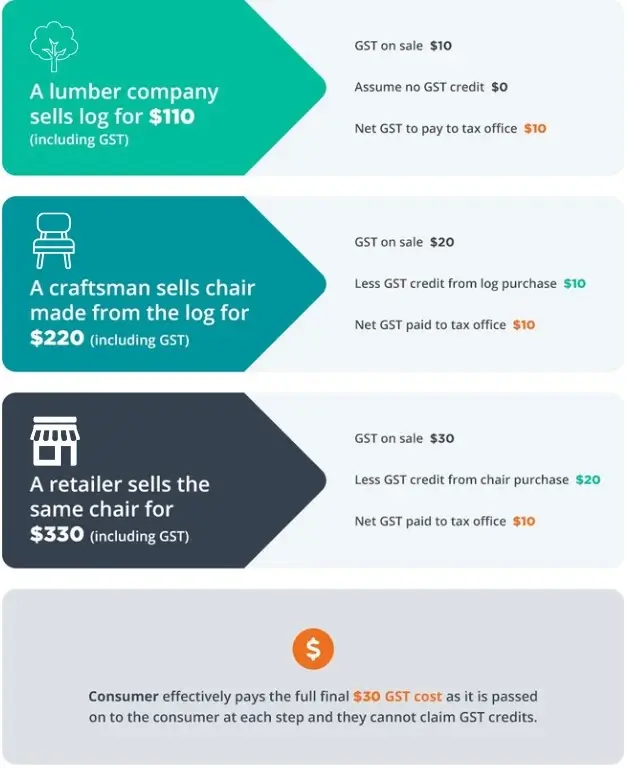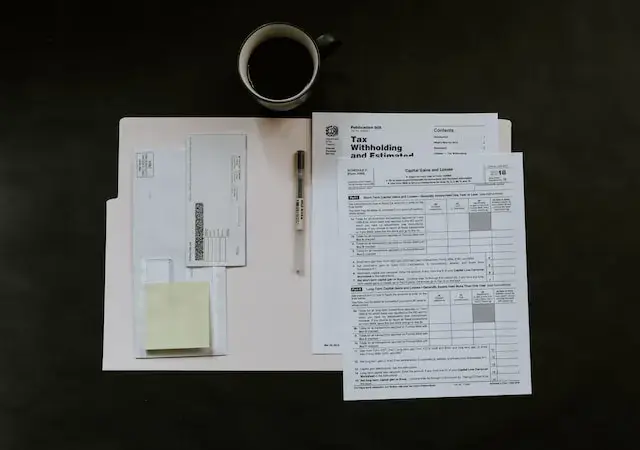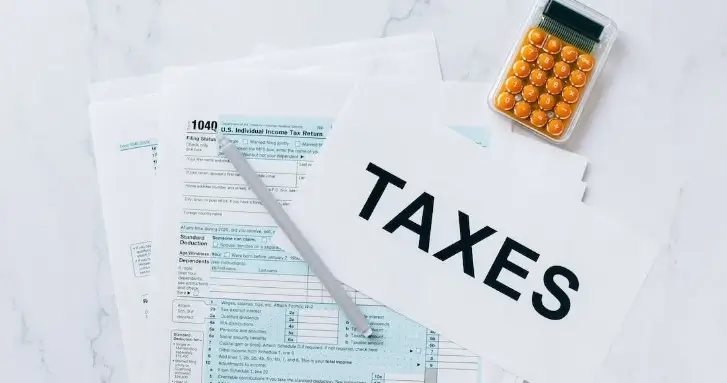Australia GST for Small Business

Small businesses play a crucial role in the economy, running small businesses and facing unique challenges. GST (Goods and Services) has significant changes in the taxation landscape, directly affecting these enterprises’ pricing strategies and profit margins.
What is GST, and how is it implemented?
Goods and Services tax (GST) 10% is levied on most goods, and services. When businesses sell services, they need to charge 10% GST on top of the sale price, and send it to ATO (Australian Taxation Office). But not all businesses need to charge GST. It is mandatory for those who have an annual turnover greater than $75,000.
Fore more click here: What is GST?
Let’s have a look at an example of GST for small business:

As you can see, ultimately consumers pay GST. The lumber company, toy manufacturer and retailer can claim back their GST that they have to pay on-charge.
Do small business have to pay GST?
As a small business, do you need to charge GST?
- Small business do not need to charge GST if the annual turnover is less than $75,000.
- If you’re a registered non-profit business, you don’t have to charge GST.
- If you’re a taxi driver or uber driver, you’ve to pay GST regardless of income.
However, you have a choice when it comes to paying GST as a small business. You can charge GST if you believe you reached the annual turnover. If yes, You need to use our GST calculator tool to check the amount of GST you charge based on your services.
GST limit for small business
The GST threshold for small businesses is $75,000. Pay attention always to the current and expected threshold at all times to ensure you remain compliant with the Australian Taxation Office.
GST exemption for small business
When you exempt from GST in Australia, apart from threshold:
As a small business, you don’t add GST in the price to services your business sells that are already GST-free. However, you can claim credit for the GST included in the cost of items used to create those products.
For example, if you grow apples, and sell them in the market without adding GST. But you can still claim for GST credits on the business purchases you made in order to grow those apples.
GST exemptions include, but are not limited to:
- some exports
- most basic food
- some education courses, course materials
- some medicines
- some medical, childcare and health services
- some religious services and charitable activities
GST benefits for small business
There’re benefits to registering for GST, even if your GST threshold is not exceeded.
For example, if you’re purchasing expensive equipment for your business. If you use a car for work and want to buy, registering for GST might be a smart move.
It means you claim credits on your business-related car purchase and receive a decent GST refund on your BAS statement.
If you don’t register for GST, you cannot claim GST credits. The benefit of registering is a calculation based on your circumstances and the cost of your business related purchases.
There’s also the matter of business perception, if you look like a big company, more professional then register for GST, otherwise you may give across the image that you’re a small business by not charging GST.
Of course, every business that has a greater than $75,000 threshold must register for GST, so if you don’t include GST in your invoice that means you signal to buyers in terms of business size and earning.
Small business not registered for GST
If your threshold is less than $75,000, you don’t need to register for GST.
What’s the advantage of not being registered for GST?
If your business doesn’t pay many business-related expenses, you may not register for GST and you will not get any credits or GST refunds from the ATO.
There are also other reasons for not registering your Australian small business. Such as competitiveness if you didn’t add 10% GST in your services or product price so your price, meaning your prices are attractive and your customers pay less.
Conclusion
There are some pros and cons for small businesses to register for GST. A business is only required to register for GST if the threshold is exceeding $75,000. But if your business doesn’t pay GST, many business-related expenses, so you don’t need to register for GST. But if you register for GST, even if your GST threshold is not exceeded. It means you can claim credits on your business-related expenses.



